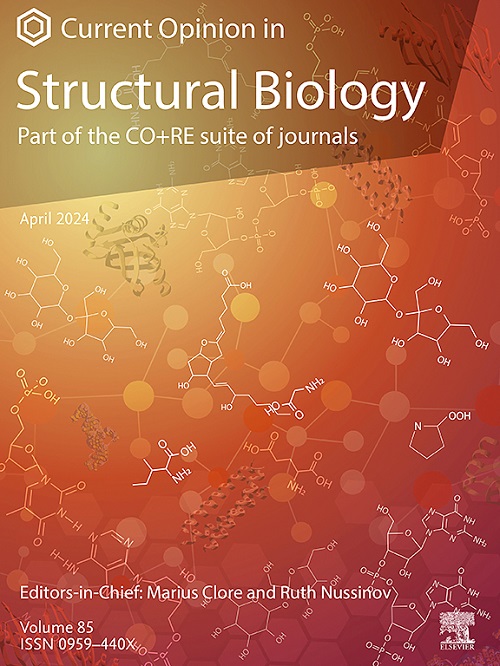Toward deep learning sequence–structure co-generation for protein design
IF 6.1
2区 生物学
Q1 BIOCHEMISTRY & MOLECULAR BIOLOGY
引用次数: 0
Abstract
Deep generative models that learn from the distribution of natural protein sequences and structures may enable the design of new proteins with valuable functions. While the majority of today’s models focus on generating either sequences or structures, emerging co-generation methods promise more accurate and controllable protein design, ideally achieved by modeling both modalities simultaneously. Here we review recent advances in deep generative models for protein design, with a particular focus on sequence-structure co-generation methods. We describe the key methodological and evaluation principles underlying these methods, highlight recent advances from the literature, and discuss opportunities for continued development of sequence-structure co-generation approaches.
求助全文
约1分钟内获得全文
求助全文
来源期刊

Current opinion in structural biology
生物-生化与分子生物学
CiteScore
12.20
自引率
2.90%
发文量
179
审稿时长
6-12 weeks
期刊介绍:
Current Opinion in Structural Biology (COSB) aims to stimulate scientifically grounded, interdisciplinary, multi-scale debate and exchange of ideas. It contains polished, concise and timely reviews and opinions, with particular emphasis on those articles published in the past two years. In addition to describing recent trends, the authors are encouraged to give their subjective opinion of the topics discussed.
In COSB, we help the reader by providing in a systematic manner:
1. The views of experts on current advances in their field in a clear and readable form.
2. Evaluations of the most interesting papers, annotated by experts, from the great wealth of original publications.
[...]
The subject of Structural Biology is divided into twelve themed sections, each of which is reviewed once a year. Each issue contains two sections, and the amount of space devoted to each section is related to its importance.
-Folding and Binding-
Nucleic acids and their protein complexes-
Macromolecular Machines-
Theory and Simulation-
Sequences and Topology-
New constructs and expression of proteins-
Membranes-
Engineering and Design-
Carbohydrate-protein interactions and glycosylation-
Biophysical and molecular biological methods-
Multi-protein assemblies in signalling-
Catalysis and Regulation
 求助内容:
求助内容: 应助结果提醒方式:
应助结果提醒方式:


